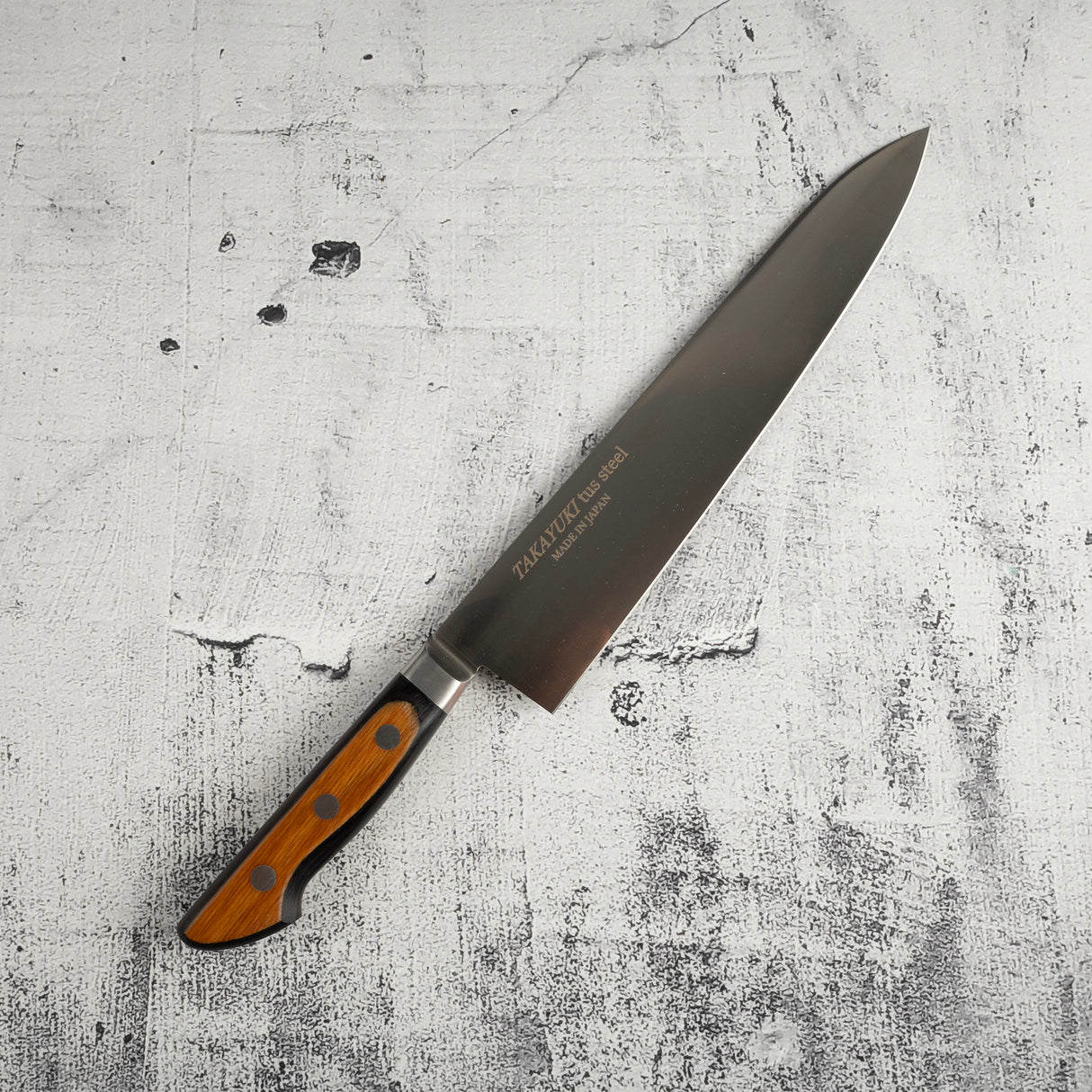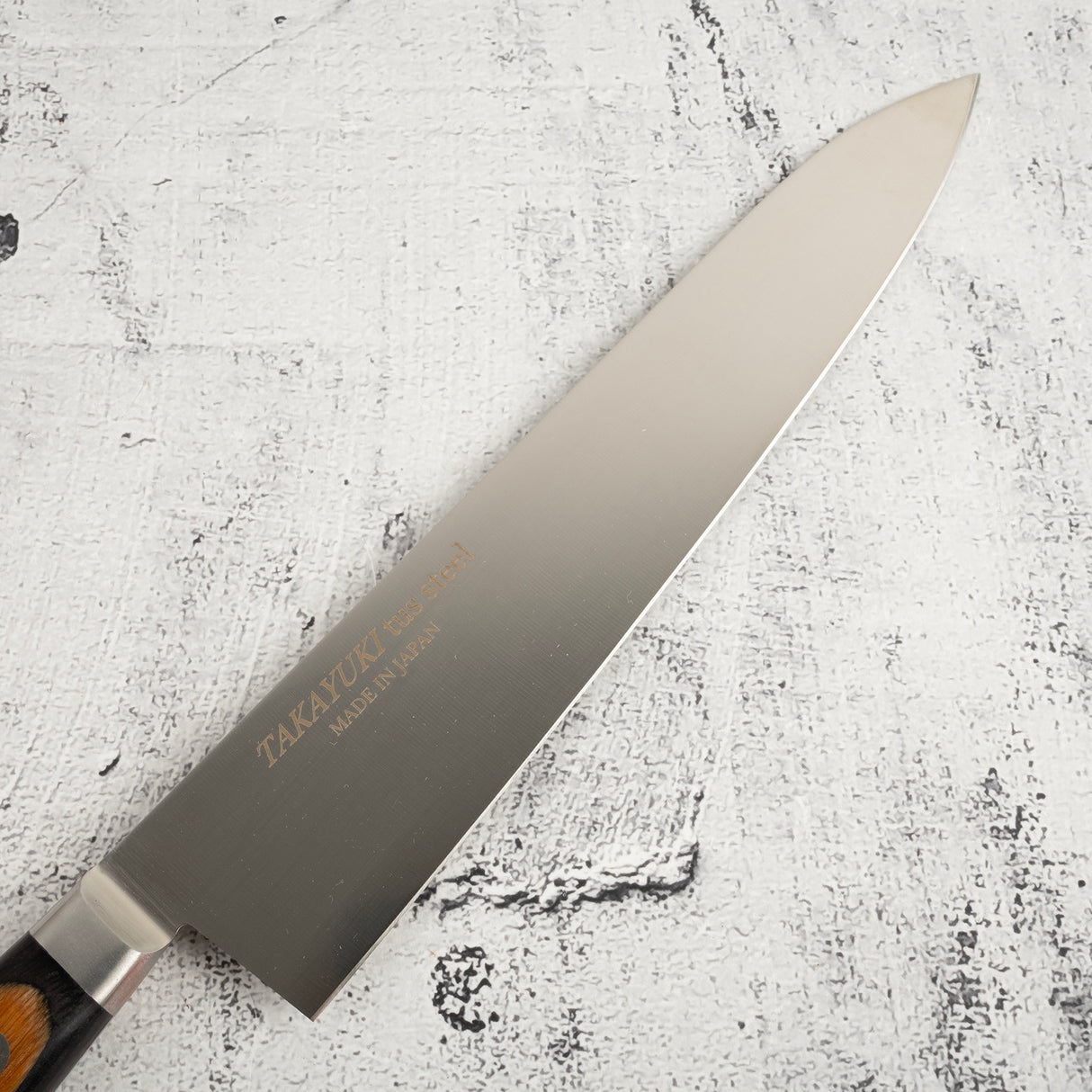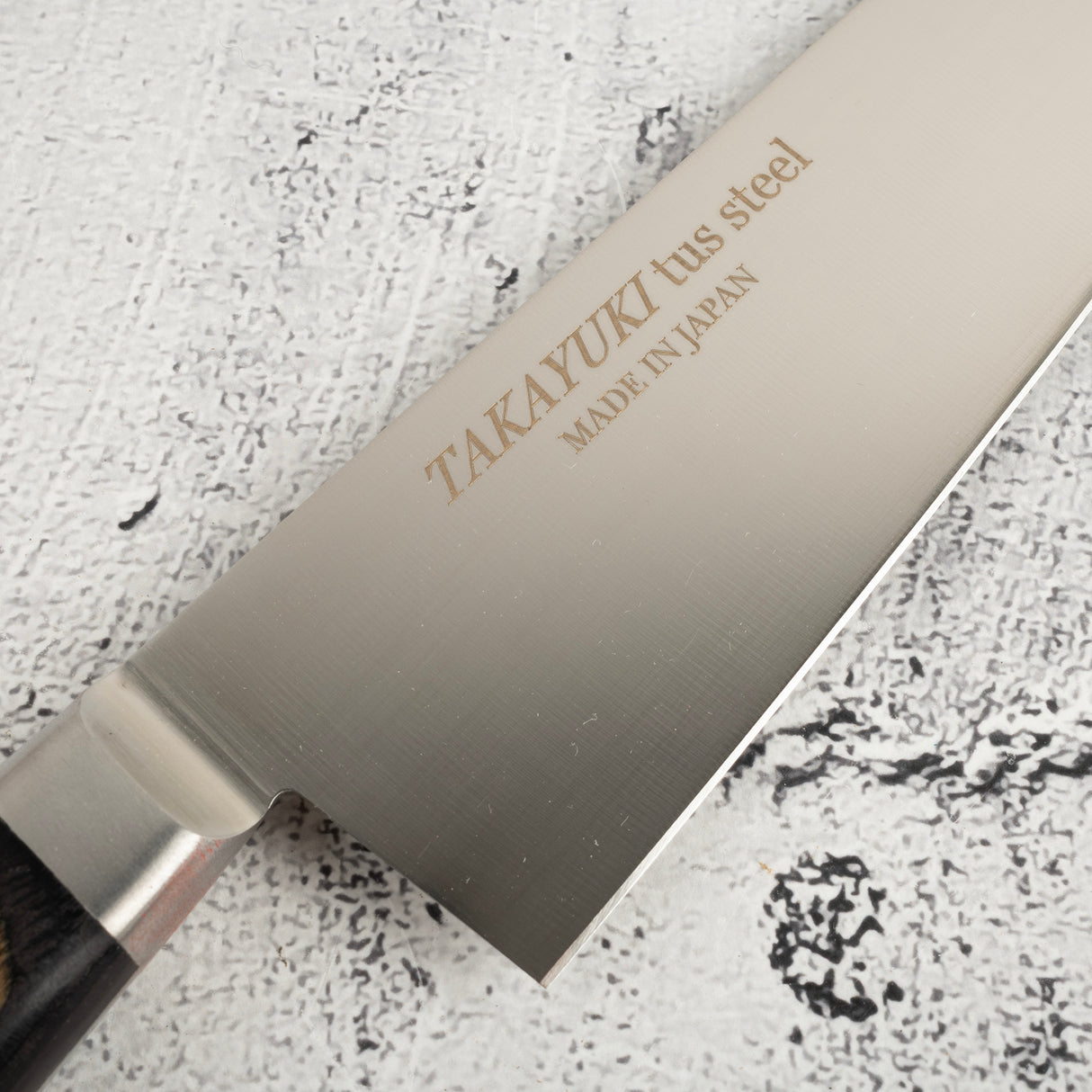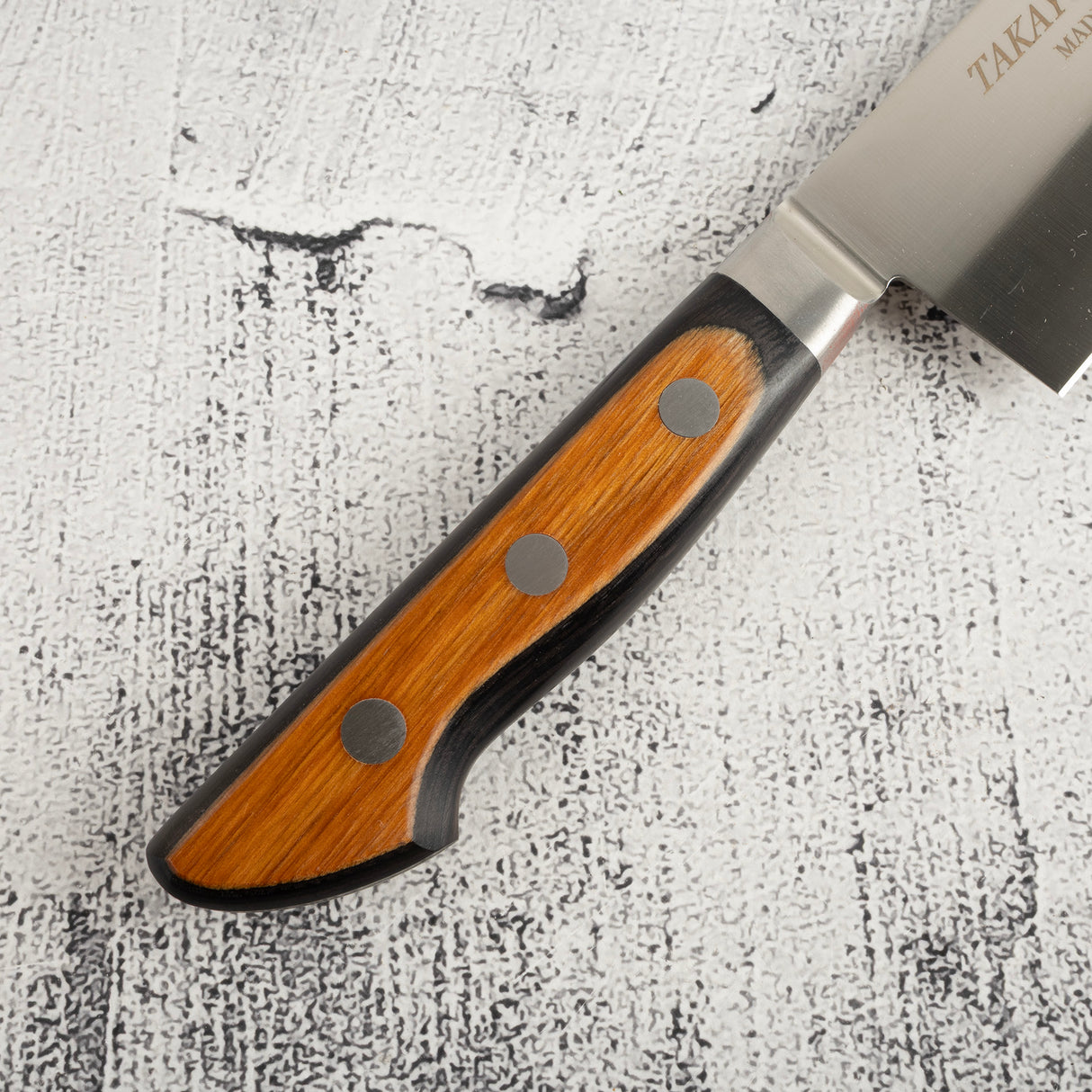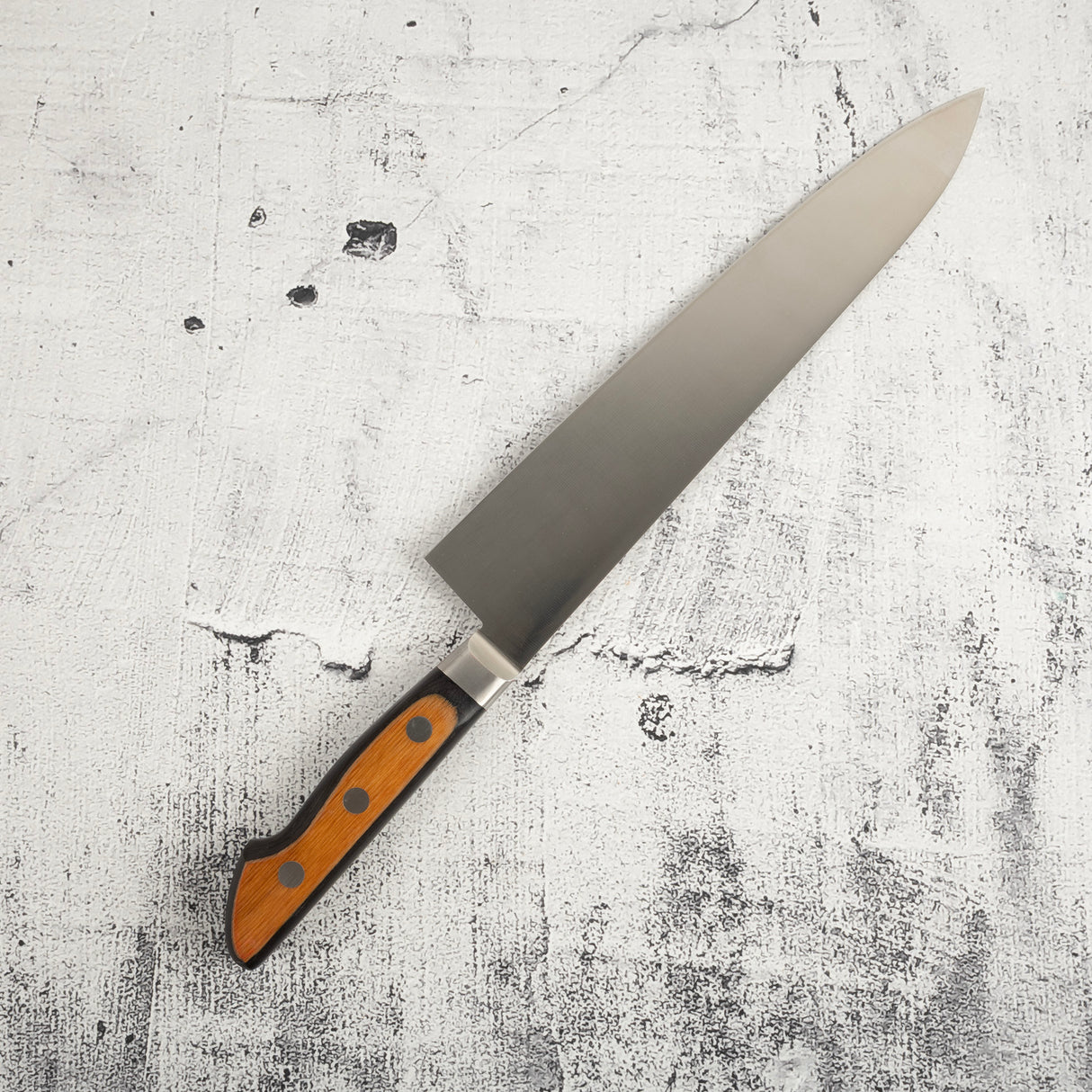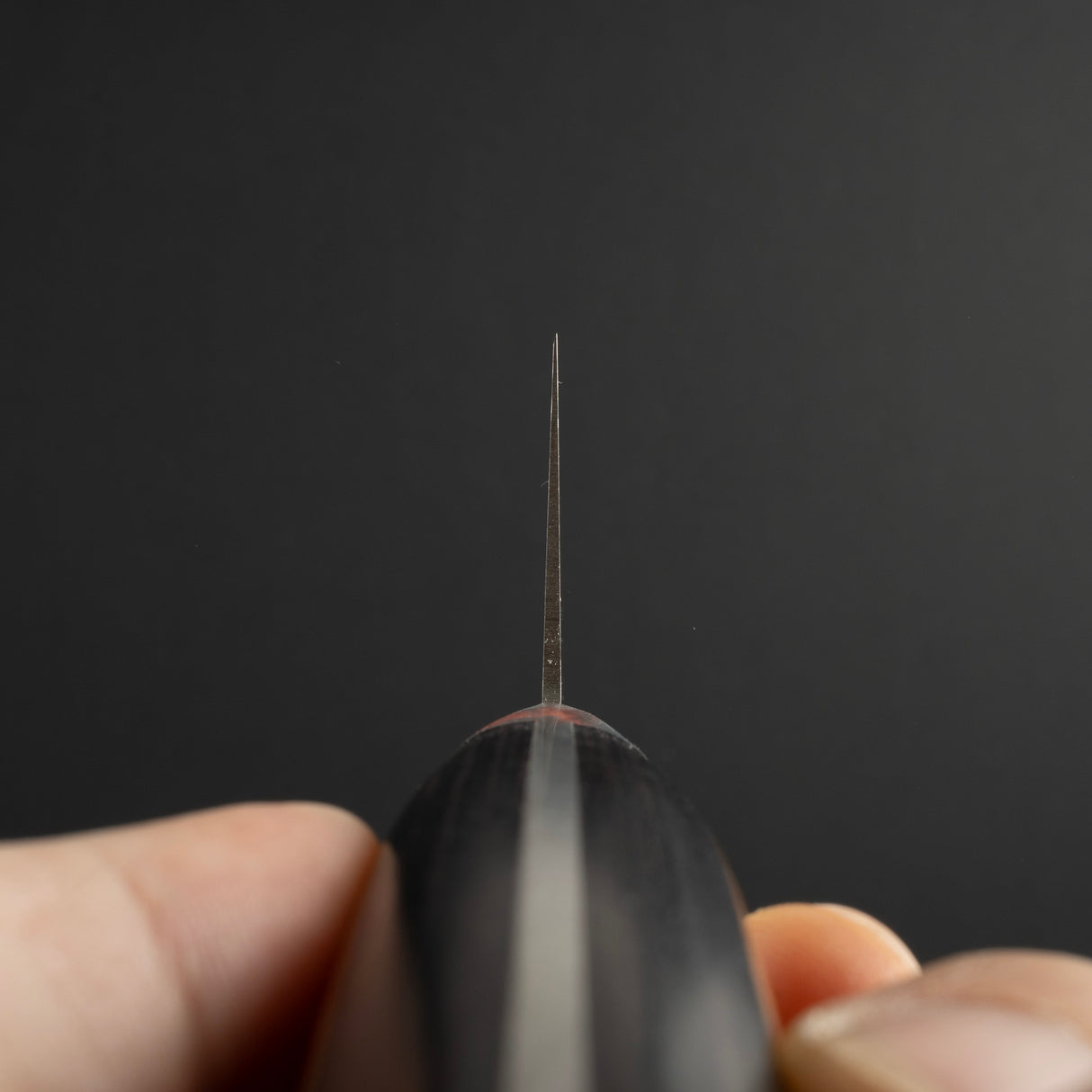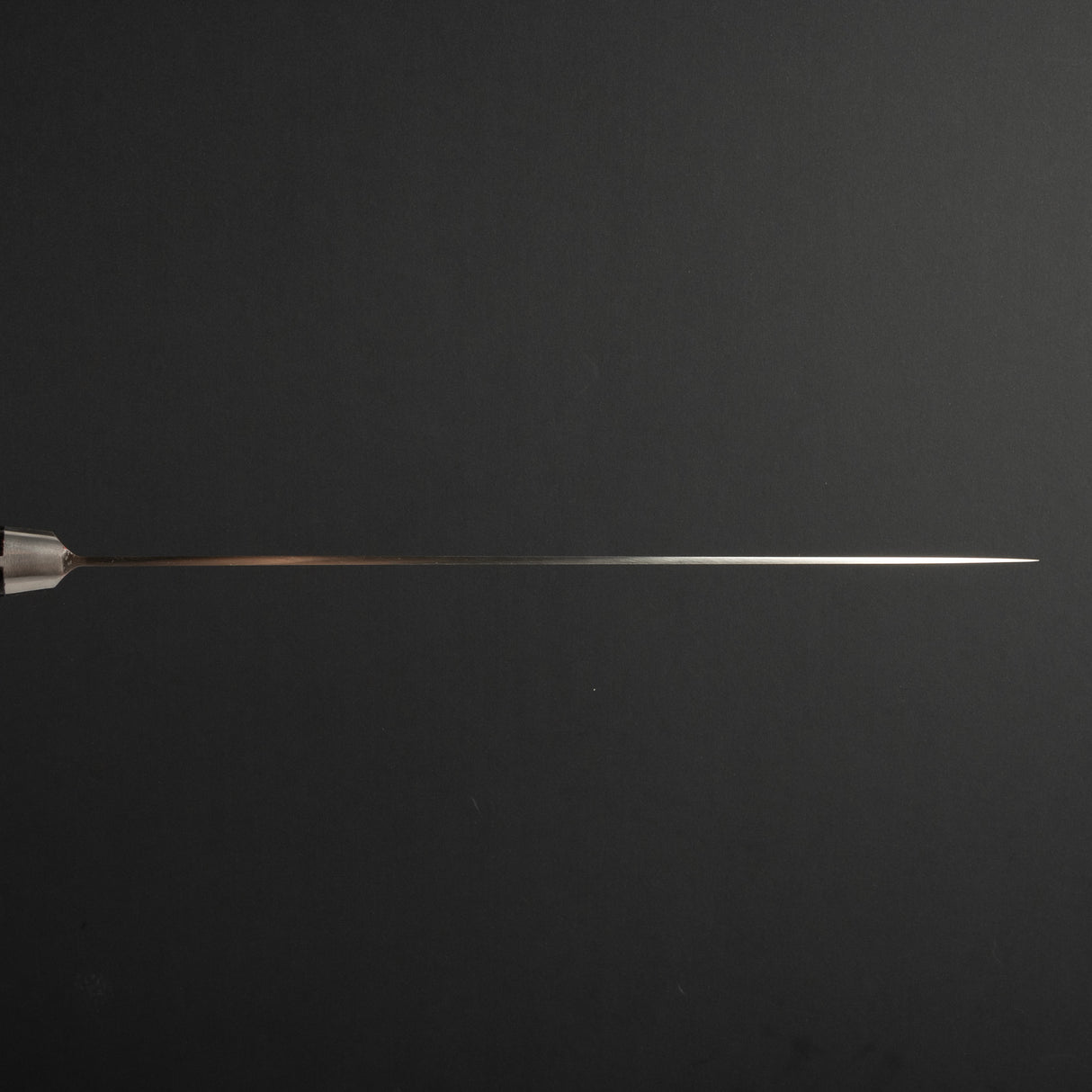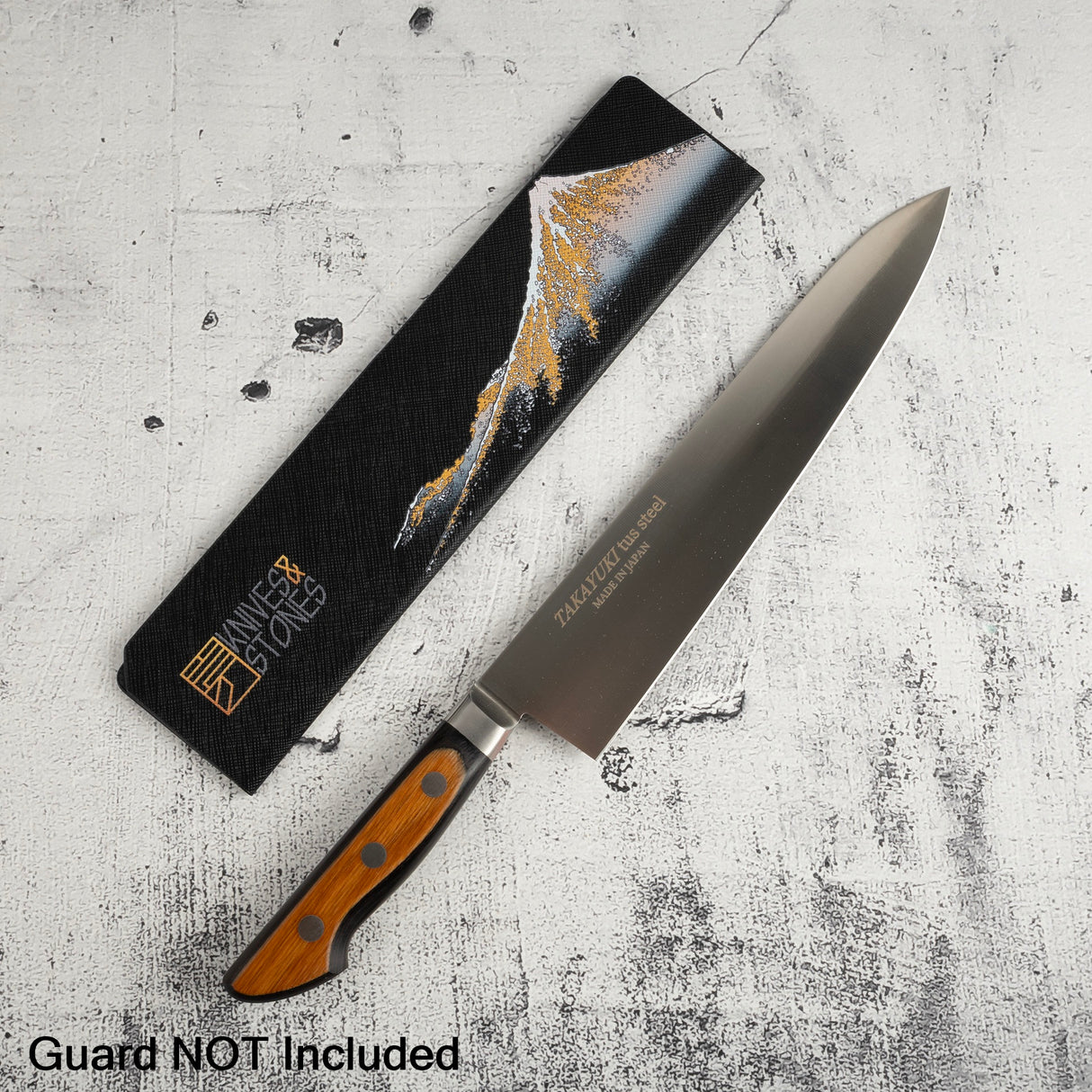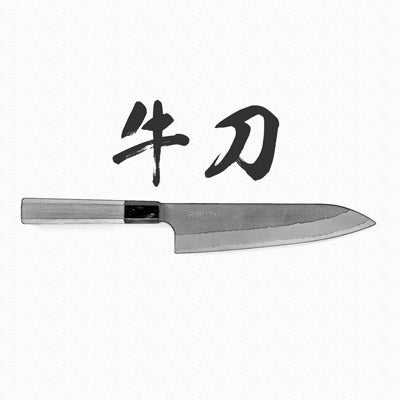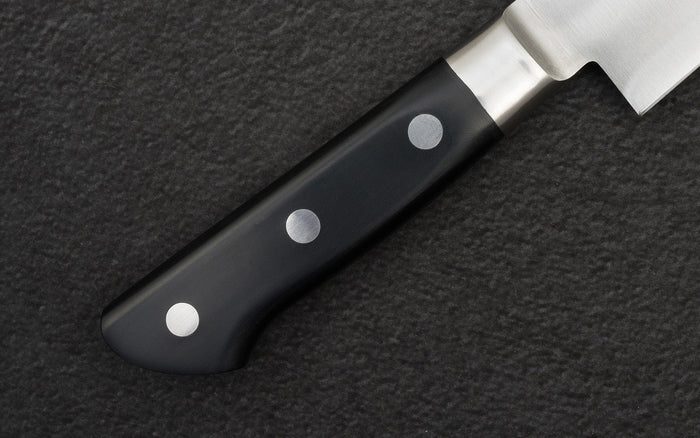Sakai Takayuki | SKU:
SATA_TUS_GY240
Sakai Takayuki TUS Gyuto 240mm
Regular price
$199.95
Unit price
Tax included
Shipping calculated at checkout.
Sakai Takayuki TUS Gyuto 240mm is backordered and will ship as soon as it is back in stock.
Pickup available at Crows Nest
Usually ready in 24 hours
Detailed Specifications
| Line | To Be Added - Stainless clad |
| Profile | Gyuto / Chefs Knife |
| Weight | 177 g 6.24 oz |
| Edge Length | 237 mm .9.33 inch |
| Heel Height | 46 mm .1.81 inch |
| Width @ Spine | 2.0 mm 0.08 inch |
| Width @ Mid | 1.6 mm 0.06 inch |
| Width @ 1cm from Tip | 0.8 mm 0.03 inch |
| Steel | Inox | Stainless |
| Blade Construction | To Be Added |
| Hardness (HRC) | 57 - 59 |
| Surface Finish | To Be Added |
| Handle | Western Pakka Wood with Bolster |
| Best for |
|
Discover the exceptional Sakai Takayuki TUS Gyuto 240mm, a premium Japanese kitchen knife crafted for professional chefs and cooking enthusiasts. This 240mm Gyuto (Japanese chef's knife) features advanced TUS stainless steel construction, providing excellent edge retention and corrosion resistance while maintaining the traditional sharpness Japanese kitchen knives are famous for. With precise measurements including a 237mm edge length, 46mm blade height, and tapered spine thickness from 2.0mm at the heel to 0.8mm at the tip, this Japanese kitchen knife offers perfect balance and cutting performance. The Western-style Pakka wood handle with bolster ensures comfortable grip and control during extended use. Experience the perfect blend of traditional Japanese craftsmanship and modern steel technology in this versatile Japanese kitchen knife designed for all your culinary tasks from slicing vegetables to preparing meats.
Care Instruction
- Don't cut hard things! Japanese knives are brittle so bone hacking is a NO NO!
- Wash with neutral detergent after use, and wipe dry;
- Please don't wash knife with dishwasher, it will damage the wood handle;
- Be careful not to leave the knife close to a heat source for a long time;
- It is a lot more dangerous to cut with a blunt knife than a sharp knife!
- It is best to sharpen a Japanese knife regularly on a waterstone.

